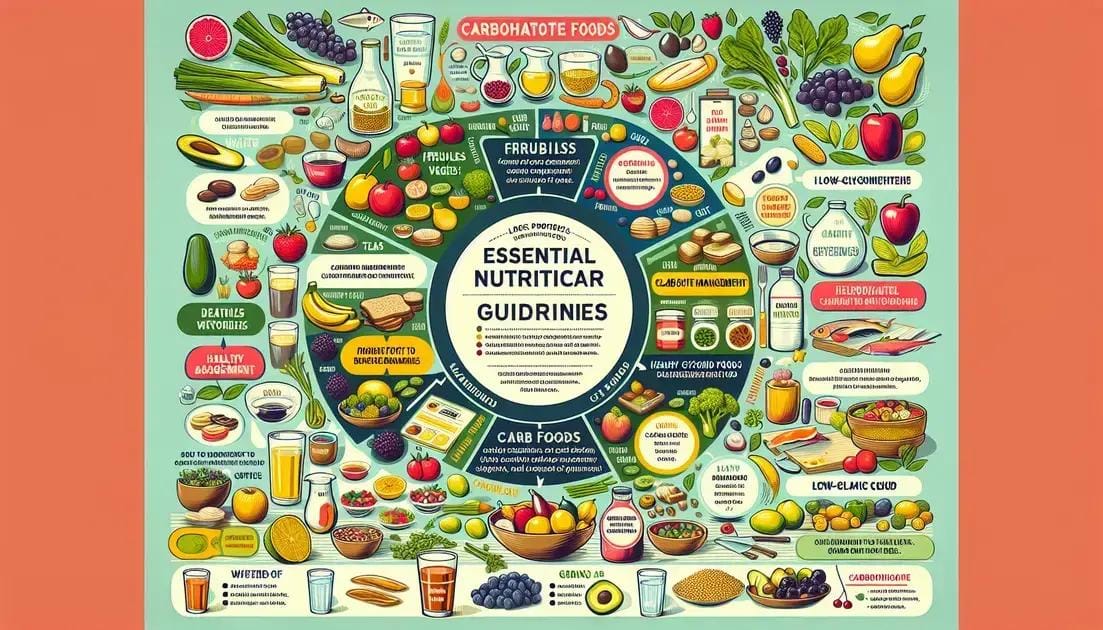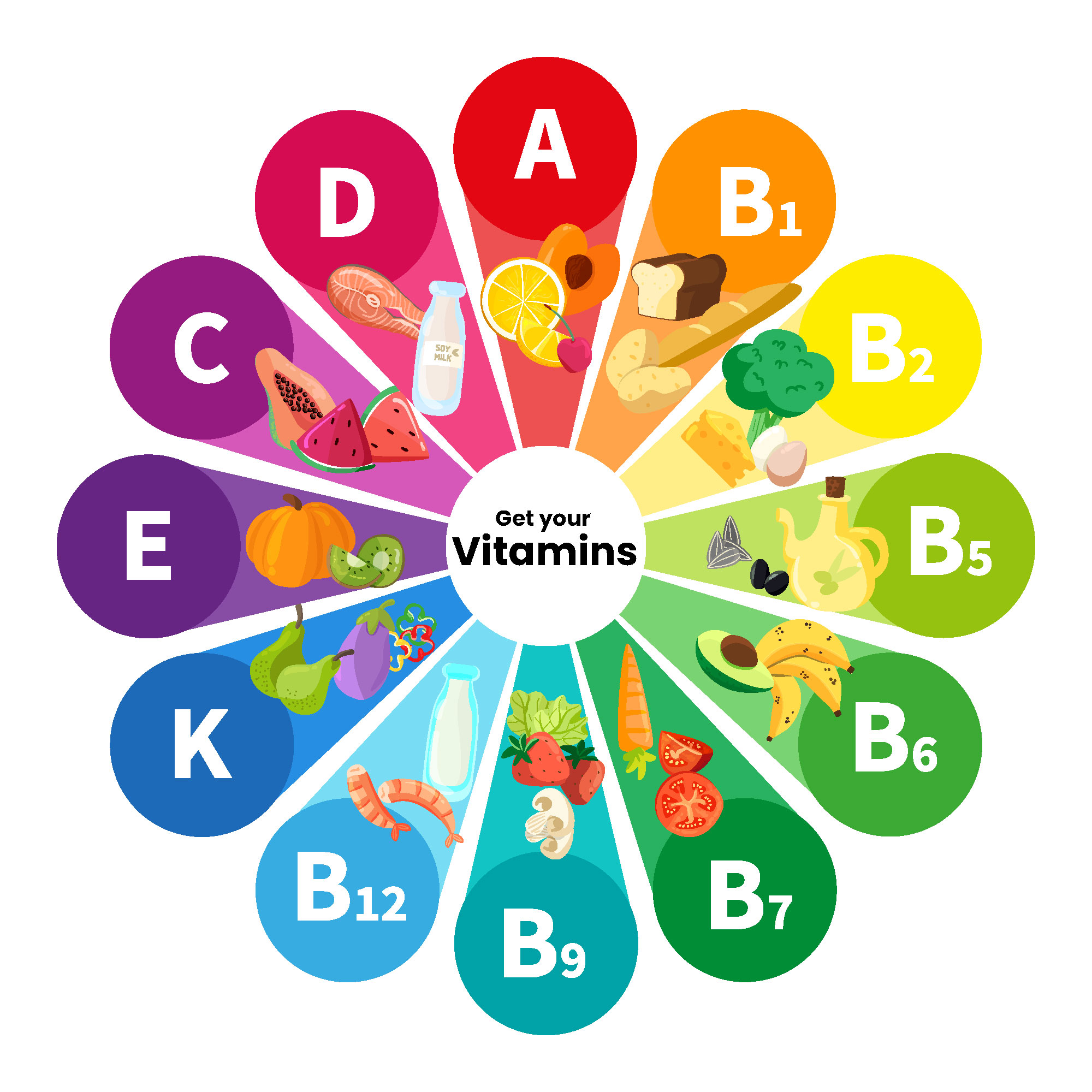Diabetics face unique challenges when it comes to managing their health, especially regarding their diet. Understanding how diabetics can make informed choices is crucial to maintaining a balanced lifestyle.
In this article, we will delve into the importance of nutritional guidelines specifically designed for diabetics, discuss the best foods to manage blood sugar levels, and provide practical tips for a healthier diet.
Content
ToggleUnderstanding Diabetes and Its Impact on Diet
Understanding diabetes is crucial for anyone looking to manage or prevent the condition. Diabetes is a chronic disease that affects how your body converts food into energy.
When you eat, your body breaks down most of the food into sugar, or glucose, which is then released into your bloodstream.
The impact of diabetes on diet is significant, as it often requires careful monitoring of carbohydrate intake to maintain stable blood sugar levels.
The Role of Insulin
Insulin is a hormone produced by the pancreas that allows cells to use glucose for energy. In people with diabetes, the body either doesn’t produce enough insulin or can’t use it effectively.
This leads to elevated blood sugar levels, which can cause various health issues over time.
Dietary Implications for Diabetics
Understanding the relation between diabetes and diet helps diabetics make informed food choices. Foods that have high glycemic indexes can cause rapid spikes in blood sugar, whereas low-glycemic foods lead to more gradual increases.
This means that diabetics need to limit their intake of sugary snacks and high-carbohydrate foods while focusing on balanced meals that include fiber, healthy fats, and lean proteins.
A well-planned diet can effectively mitigate the disease’s repercussions and promote overall health.
Food Choices Matter
Choosing the right foods is vital. Foods rich in fiber, such as whole grains, vegetables, and legumes, can help regulate blood sugar levels.
Additionally, incorporating healthy fats from sources like avocados, nuts, and olive oil while reducing saturated and trans fats is essential.
Knowledge of what to eat and what to avoid empowers diabetics to lead healthier lives.
Essential Nutritional Guidelines for Diabetics

Essential Nutritional Guidelines for Diabetics focus on balancing carbohydrate intake while ensuring that essential nutrients are not missed.
To maintain healthy blood sugar levels, diabetics should follow specific dietary guidelines.
Prioritize Whole Foods
Whole foods, such as fruits, vegetables, whole grains, and lean proteins, should make up the majority of a diabetic’s diet.
These foods are rich in nutrients and fiber, which help slow the absorption of sugar into the bloodstream.
Mind the Carbohydrates
Understanding how many carbohydrates you consume is essential for managing blood sugar. Counting carbohydrates helps diabetics prevent spikes in glucose levels.
Aim for meals that combine complex carbohydrates with protein or healthy fats to stabilize blood sugar.
Fats are Important, but Choose Wisely
While fats are an essential part of your diet, it’s crucial to choose the right types. Focus on consuming unsaturated fats found in nuts, seeds, avocados, and olive oil while limiting saturated and trans fats that can increase the risk of heart disease.
Regular Meal Timing
Eating at regular intervals helps maintain stable blood sugar levels. Incorporate snacks if needed and avoid skipping meals.
This approach not only ensures energy levels are sustained but also helps keep blood sugar levels within target ranges.
Stay Hydrated
Drinking plenty of water is often overlooked but is vital for all, especially diabetics. Staying hydrated helps control appetite and supports overall health.
Aim for at least eight glasses of water daily, adjusting intake based on activity levels and climate.
Best Foods for Maintaining Healthy Blood Sugar Levels
Best Foods for Maintaining Healthy Blood Sugar Levels play a crucial role in the diet of diabetics. Selecting the right foods can help keep blood sugar levels stable and promote overall health.
Leafy Greens
Leafy greens such as spinach, kale, and collard greens are excellent choices. They are low in calories and carbohydrates yet high in vitamins and minerals.
Their fiber content helps in managing blood sugar levels effectively.
Berries
Berries, including strawberries, blueberries, and blackberries, provide antioxidants and fiber. They offer a sweet flavor without a significant spike in blood sugar, making them a smart fruit choice for diabetics.
Whole Grains
Whole grains, such as brown rice, quinoa, and whole wheat bread, should be part of a balanced diet. They provide complex carbohydrates that digest slowly, preventing rapid increases in blood sugar levels.
Nuts and Seeds
Nuts and seeds, like almonds, walnuts, and chia seeds, are rich in healthy fats, protein, and fiber. They help control blood sugar levels and reduce hunger, making them perfect snacks for diabetics.
Legumes
Legumes, including lentils, chickpeas, and beans, are high in protein and fiber. Their low glycemic index means they cause slower rises in blood sugar compared to other carbohydrate-rich foods.
Healthy Fats
Incorporate healthy fats from sources like avocados and olive oil. These fats not only support heart health but also help slow the absorption of carbohydrates, controlling blood sugar spikes.
Fish
Fatty fish like salmon, mackerel, and sardines are good sources of omega-3 fatty acids. These nutrients support heart health, an important consideration for diabetics who are at higher risk for cardiovascular diseases.
In Conclusion: Managing Diabetes Through Diet
Understanding how to manage diabetes through diet is essential for maintaining a healthy lifestyle.
By prioritizing nutritious foods and being mindful of carbohydrate intake, diabetics can keep their blood sugar levels stable. Incorporating leafy greens, berries, whole grains, nuts, legumes, healthy fats, and fatty fish into daily meals provides a balanced approach to nutrition that supports overall health.
Following essential nutritional guidelines and recognizing the best foods for blood sugar management empower diabetics to take control of their health.
Remember, each small dietary change can make a significant impact on long-term health outcomes.
Stay informed, make healthy choices, and you can successfully navigate life with diabetes.
FAQ – Frequently Asked Questions About Eating for Diabetes Management
What foods should diabetics avoid?
Diabetics should avoid foods high in added sugars, refined carbohydrates, and trans fats, such as sugary snacks, white bread, and fried foods.
How can whole grains help in diabetes management?
Whole grains have a lower glycemic index and are high in fiber, which helps regulate blood sugar levels and provides sustained energy.
What role do healthy fats play in a diabetic diet?
Healthy fats help control hunger and can slow the absorption of carbohydrates, making them a beneficial choice for maintaining stable blood sugar levels.
How important is portion control for diabetics?
Portion control is crucial for diabetics as it helps manage carbohydrate intake and prevents sudden spikes in blood sugar levels.
Can fruit be included in a diabetic diet?
Yes, fruits like berries are lower in sugar and high in fiber, making them a healthy choice for diabetics when consumed in moderation.
Is it safe for diabetics to eat snacks?
Yes, healthy snacks can help regulate blood sugar levels and prevent overeating at meals. Choose options like nuts, yogurt, or fresh vegetables.



